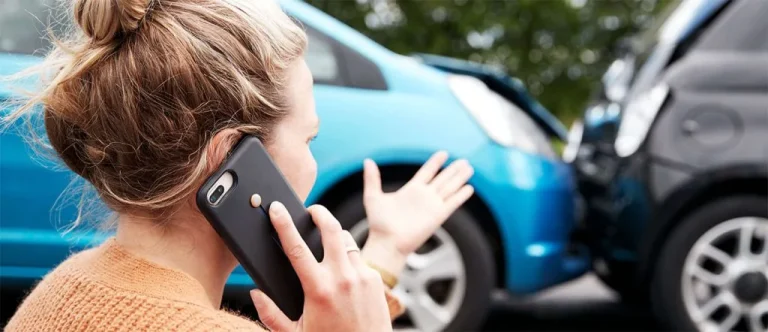Whether you’re from the big city or a small country town, there are plenty of places to go and things to see in the Hoosier State, but only if you have adequate car insurance to safely take to the state’s roads. All car insurance policies in Indiana must meet the state’s minimum legal coverage requirements, and all drivers must have the minimum legal amount of car insurance.
Let’s take a closer look at the laws regarding auto insurance in Indiana and answer some of your frequently asked questions about the state’s minimum legal requirements.
What’s the Indiana State Minimum Car Insurance?
Indiana auto insurance laws state that all drivers must carry at least $25,000 of bodily injury liability per person, $50,000 of bodily injury liability per accident, and $25,000 of property damage liability per accident, also known as 25/50/25 liability coverage. When binding your first policy, your insurer must offer you the same 25/50/25 limit of uninsured motorist coverage (UM), which all policyholders can bypass if they sign a waiver rejecting this coverage.
If you lease or finance your car, your leaser or lender will likely require you to have collision and comprehensive coverages on your policy.
As long as you have 25/50/25 liability coverage and any other coverages you must have if stated in a legal contract, you’re considered adequately insured under state law. However, you may not feel adequately protected with such a minimal policy. Drivers who feel insufficiently covered with a minimum coverage policy may opt for a full coverage policy with higher liability limits and additional coverage options to feel more protected on Indiana’s roads.
Indiana Car Insurance Laws Explained
The required minimum of car insurance in Indiana is 25/50/25 liability coverage. When binding a policy, all insurers must offer policyholders the same UM coverage limit, which policyholders may reject if they sign a waiver.
Indiana is a tort state, sometimes called an at-fault state. In an accident, involved parties default to the at-fault driver’s insurance coverage for help with medical expenses or repairs. Suppose the at-fault party is injured or their vehicle requires repairs. In that case, they must default to any additional coverage types they may have on their policy, like medical payments coverage (MedPay) or collision coverage, to help them with those expenses. If the at-fault party only has liability insurance, they must pay their costs out of pocket.
Compulsory Motor Vehicle Insurance Laws in Indiana
Indiana compulsory insurance, or the amount of car insurance coverage required by law, is 25/50/25 liability coverage. Drivers may also be required to carry 25/50/25 UM coverage on their policies if they didn’t reject this coverage on a waiver from their insurer.
States like Indiana often enforce these compulsory car insurance laws by requiring drivers to carry proof of insurance while behind the wheel. If you’re in an accident or pulled over by police, officials will often ask to see your proof of insurance to verify you have the minimum amount of legally required coverage in the state.
In Indiana, penalties for failing to provide proof of insurance can lead to hefty fines or license suspension. If you lack sufficient insurance coverage, you may face more severe consequences.
Indiana Auto Insurance Laws in an Accident
Regardless of your car insurance, Indiana law requires all parties to accept appropriate liability in an accident. For example, suppose a driver speeds through a red light and hits another driver. In that case, the driver who ran the red is 100% liable and, therefore, 100% responsible for any damages the other party in an accident accrues.
However, not all accidents are 100% one driver’s fault. For example, two drivers speed through a four-way stop and hit each other because neither stopped at the stop sign. In that case, each driver is 50% responsible and, therefore, liable for 50% of the expenses incurred.
Many drivers will file with the at-fault party’s insurance when filing a claim in Indiana. This rule has some exceptions, for example, if the at-fault party lacks sufficient insurance or is entirely uninsured. If the at-fault party in an accident is uninsured, you may be able to sue them for your expenses, or you may have to pay them out of your own pocket.
A Closer Look at Indiana Minimum Car Insurance Requirements
Indiana auto insurance requirements state that all drivers must carry at least 25/50/25 liability coverage on their policies and the same limit of UM unless they reject this coverage in writing when binding their policy.
Indiana state law requires very little coverage when compared to other states that require coverages like personal injury protection (PIP), uninsured/underinsured motorist coverage (UM/UIM), or personal property insurance (PPI). While the best policy for you may be the cheapest policy in the state, that may not be true for every driver. When selecting a policy, policyholders must compromise cost and coverage.
Those who value coverage over cost will likely opt for a full coverage policy with several optional coverage types. Those who value cost over coverage will likely opt for a minimum coverage policy in following the coverage mandated by law.
Indiana Liability Insurance Requirements
According to state law, the minimum liability insurance in Indiana is a 25/50/25 limit. Policyholders with at least this amount of coverage are considered adequately insured in the state. Liability coverage essentially protects other drivers on the road, as it can be used by the injured party in an accident you cause to cover their medical expenses or repairs to their vehicle.
Drivers who only carry liability coverage on their Indiana automobile insurance policies must rely on other drivers to have adequate coverage to cover their expenses in an accident. If you’re uncomfortable relying on others to protect you in an accident, you may want a full coverage policy with coverages like MedPay or collision coverage that will cover your expenses in an accident, regardless of who’s at fault.
Indiana Full Coverage Insurance Requirements
Full coverage isn’t required in Indiana unless that’s one of the terms on your lease or finance agreement with your leaser or lender. In Indiana, a policy is considered full coverage if it includes a liability limit higher than 25/50/25 and several additional coverage types.
While full coverage is not necessary by state law, it may be necessary for your safety. A full coverage policy offers more holistic protection than a liability coverage policy with just liability coverage. In short, drivers with comprehensive and collision coverages on their full coverage policies are covered in many accident scenarios. In contrast, drivers with only liability coverage are only covered for the expenses they may owe another driver for causing an accident.
Indiana Car Insurance FAQs
Indiana’s car insurance laws and requirements are pretty straightforward but may take some time to understand completely. Let’s check out the answers to some frequently asked questions about car insurance laws in Indiana.
Is Auto Insurance Mandatory in Indiana?
Yes, car insurance is mandatory in Indiana. It’s essential every driver carries the minimum car insurance coverage in Indiana on their policies, which is 25/50/25 liability coverage. Every driver must have at least the minimum legal coverage to avoid legal consequences and protect themselves on the road. However, a policy with more coverage than the legal minimum requires will provide far more protection for you and your passengers.
Finding the happy medium between coverage and cost when binding an auto insurance policy is crucial. A good rule to follow is to have coverage that makes you feel protected while behind the wheel and aligns with your financial status. It’s important to remember when filing a claim once you reach your coverage limit, the remainder of what you owe will have to come out of your own pocket. We always recommend carrying a full coverage policy with high limits so your savings don’t suffer in the event of a serious accident.
Do You Need Car Insurance in Indiana?
All Hoosiers must have a car insurance policy that meets the state’s legal minimum coverage requirements. The standard Indiana auto insurance plan that meets these requirements has 25/50/25 liability insurance and the same limit for UM coverage unless the policyholder is exempt.
If your policy meets these requirements, you’re sufficiently covered by the law but may not feel protected on the road. For example, a policy without collision coverage won’t help the policyholder cover repairs to their vehicle. Adding collision, comprehensive, and UM coverages to your auto insurance policy will help protect you in various scenarios.
What Is the Basic Vehicle Insurance Coverage in Indiana?
The basic vehicle insurance coverage in Indiana is 25/50/25 liability coverage. This is the minimum amount of coverage drivers in the state must carry on their auto insurance policies. All Hoosiers must have auto insurance before taking to the road.
Those who opt for the basic liability coverage required in the state are sufficiently covered in the eyes of the law but may not have sufficient coverage in every accident scenario. Suppose a policyholder with basic liability coverage causes an accident that costs the other driver $35,000 in medical expenses. In that case, the policyholder must pay their deductible before their liability coverage covers $25,000 of those expenses, then the policyholder must then pay the remaining $10,000 from their savings.
Opting for a full coverage policy may be more expensive in premiums, but it will offer far more protection in the long run. A policy with a higher liability limit than the required 25/50/25, plus comprehensive coverage, collision coverage, UM, and MedPay, will offer Hoosiers far more protection on the road and in their savings.
Does Insurance Follow the Car or Driver in Indiana?
In Indiana, most car insurance coverage types follow the car instead of the driver. However, some coverages follow the driver instead. For example, coverages like bodily injury liability, property damage liability, collision coverage, and comprehensive coverage will follow the car, regardless of who is driving.
In Indiana, MedPay follows the driver. So, if an uninsured driver is driving your car and you have a full coverage policy with the coverages listed above plus MedPay, the coverages that follow the car may apply should the driver get into an accident, but they won’t be able to use your MedPay.
Does Indiana Require Auto Insurance?
In Indiana, all drivers must have at least a 25/50/25 liability coverage limit. This means that all drivers must have some auto insurance. Drivers who lack sufficient coverage as required by law may face fines, license suspension, and increased premium costs.
Do You Have To Have Car Insurance in Indiana?
Indiana car insurance law mandates all drivers must have a car insurance policy with at least 25/50/25 liability coverage. While having the coverage you need, by law, protects you from legal consequences, it may not offer the best protection from other drivers. The best auto insurance policy for you may be the most affordable in the state or one with expansive coverage with a higher premium.
Indiana Car Insurance Quotes
In Indiana, minimum car coverage pricing averages about $650 annually, or about half of the average full coverage premium of about $1,210 annually. The best way to find a policy that meets all legal requirements and your needs is to shop online for quotes from several insurers. Getting and comparing quotes allows you to see the coverages and prices offered by several insurers to make the most informed decision about your policy.
Lucky for you, quotes are our forte here at Clovered. You can get a free quote in just minutes using our free quoting tool right here. If you prefer to speak with an agent about getting a quote or have any questions about car insurance requirements in Indiana, call us at 833-255-4117 or email us at agent@clovered.com.
The editorial content on Clovered’s website is meant to be informational material and should not be considered legal advice.




